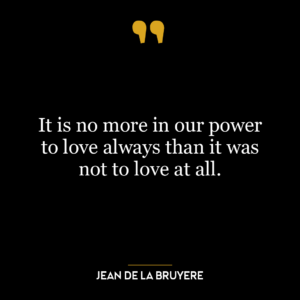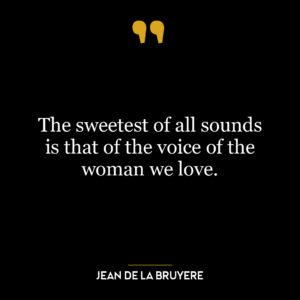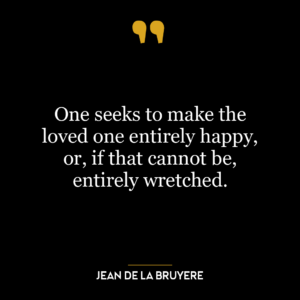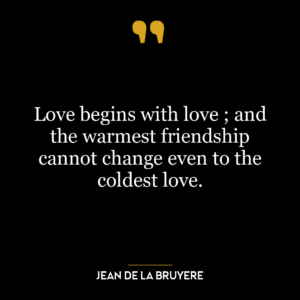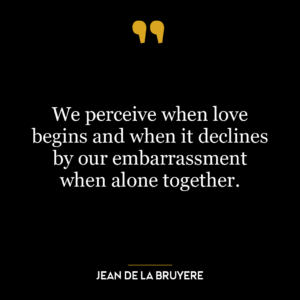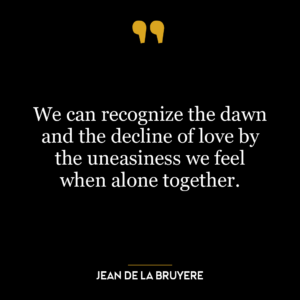This quote suggests that understanding oneself is closely linked to understanding how others perceive us. It means that our self-knowledge is not just about introspection or self-analysis, but is also shaped by the impressions we leave on others. When people love or hate us, they are responding to certain aspects of our character or behavior. Therefore, by honestly and objectively examining why certain people have loved or hated us, we can gain valuable insights into our strengths, weaknesses, and the impact we have on others.
The quote implies that self-awareness comes from a balanced perspective of both positive and negative feedback. Love can reveal our virtues and positive attributes, while hate can expose our flaws and areas for improvement. This approach encourages us to acknowledge and accept our imperfections, which is a crucial step towards personal growth and self-improvement.
In today’s context, this idea is particularly relevant due to the prevalence of social media and online communication. We are constantly receiving feedback, both positive and negative, from others. This quote encourages us to not dismiss this feedback, but to use it as a tool for self-understanding and personal development.
For instance, if someone receives a lot of praise for their creative work, this might indicate their talent and originality. On the other hand, if they are often criticized for being insensitive or rude, this might suggest a need to work on their empathy and communication skills.
However, it’s important to remember that while others’ perceptions can provide valuable insights, they don’t define us completely. We should also consider our own feelings, thoughts, and experiences in our journey of self-discovery. Ultimately, knowing ourselves is about achieving a balance between how we see ourselves and how others see us.





